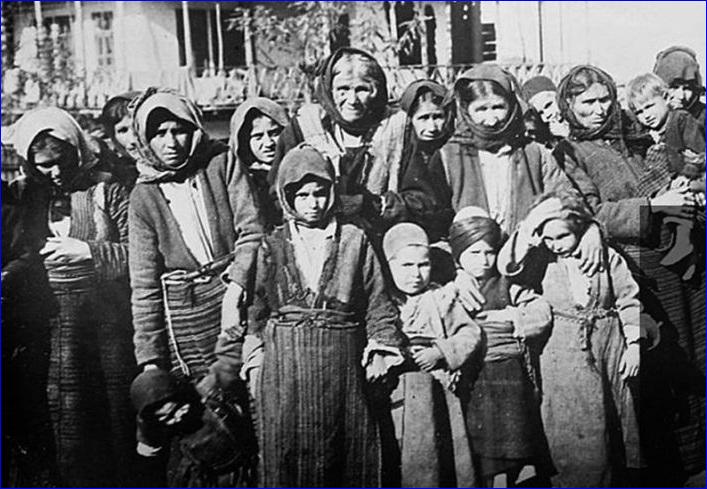


In a statement released on Sunday, Yüksel Mutlu, deputy co-chair responsible for the party's Peoples and Beliefs Commission, said the suffering endured by the Assyrian people had still not been acknowledged by the Turkish state. "Although 110 years have passed since this tragic history, the Assyrian people still await justice and recognition," she said.
Related: The Assyrian Genocide
Beginning in 1915 and continuing into the early 1920s, hundreds of thousands of Assyrians--a Christian people indigenous to Mesopotamia--were killed, displaced or forcibly assimilated as part of a broader campaign of violence by the Ottoman Empire. Churches and monasteries were destroyed, schools were closed, and place names were altered in an attempt to erase the community's cultural presence.
The term Seyfo, meaning "sword" in Syriac, captures the collective memory of these events within the Assyrian community. While international attention has largely focused on the Armenian genocide, many Assyrians view Seyfo as a parallel chapter of the same historical period.
Mutlu said the call for justice is not only about the Assyrian people, but about building peace for all of Turkey's communities. "Recognition and confrontation with these sufferings is not only vital for the Assyrian people but also a foundational step towards justice, coexistence and societal peace for all peoples of Turkey," she said.
The DEM Party, which campaigns for Kurdish rights and broader democratic reform, has frequently criticised the Turkish state's denial of historical atrocities against minority groups. Successive governments have resisted efforts to label the events of 1915 as genocide, instead referring to them as wartime casualties in the context of a collapsing empire.
Despite this official stance, civil society groups, historians and members of affected communities continue to seek public recognition. In recent years, diaspora organisations have called for Turkey to confront its past and to support cultural and educational initiatives aimed at preserving Assyrian heritage.
Once numbering in the hundreds of thousands, the Assyrian population in Turkey has declined sharply. Today, fewer than 20,000 remain, mostly in the southeastern Tur Abdin region, long regarded as a historical heartland of Assyrian Christianity.
In her message, Mutlu stressed the importance of remembrance and solidarity: "We share the pain of the Assyrian people and respectfully remember those who perished," she said.

or register to post a comment.